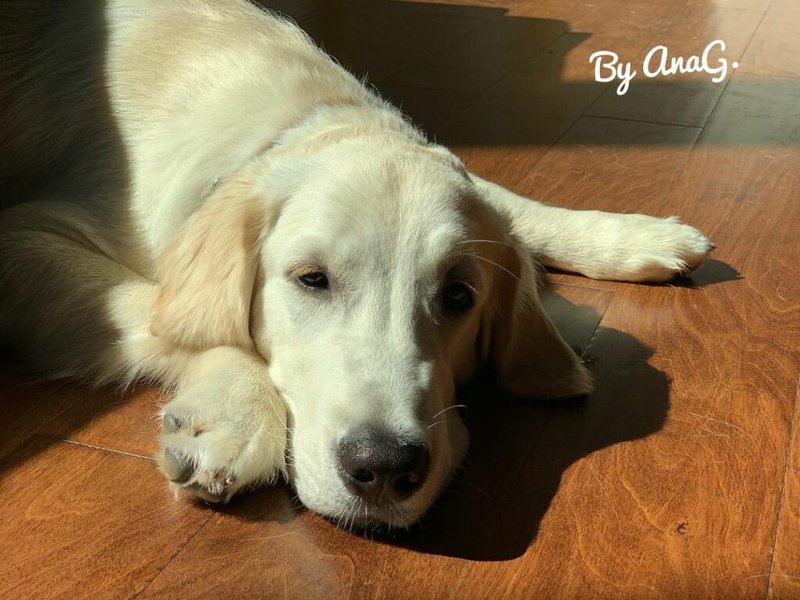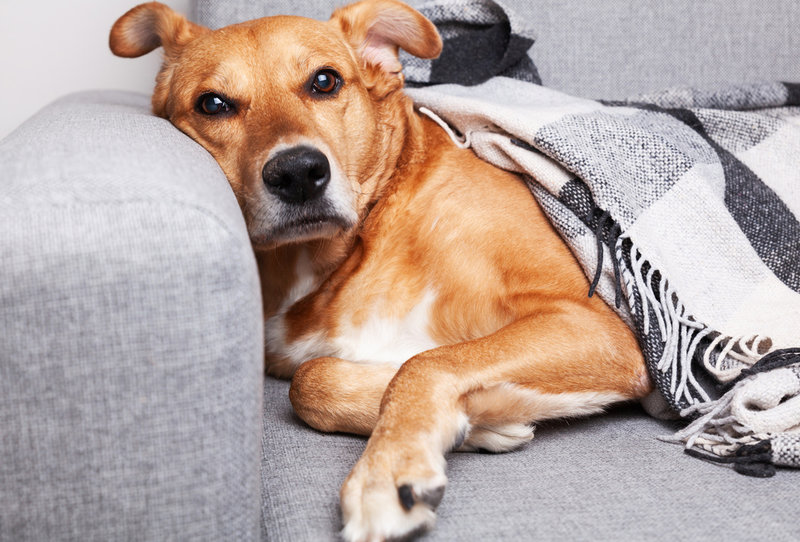Is your dog suffering from diarrhea with a foul-smelling stool with a bloody or yellowish discharge? Then it could be time for you to have your fur baby checked by the veterinarian for coccidiosis.
Coccidiosis is an intestinal infection caused by a single-celled protozoan parasite called coccidia. These are not worms but microscopic parasites that live in the walls of their intestines. It is most common among puppies but can also infect adult dogs.
The usual method of infection is through the ingestion of soils that contain coccidia or contact with surfaces that may have been contaminated with infected dog feces.
This article will look into the symptoms associated with this parasitic infection. We’d also understand how they infect our precious pooches, the ways we can prevent their spread, and the treatments available.
What Is Coccidia In Dogs?
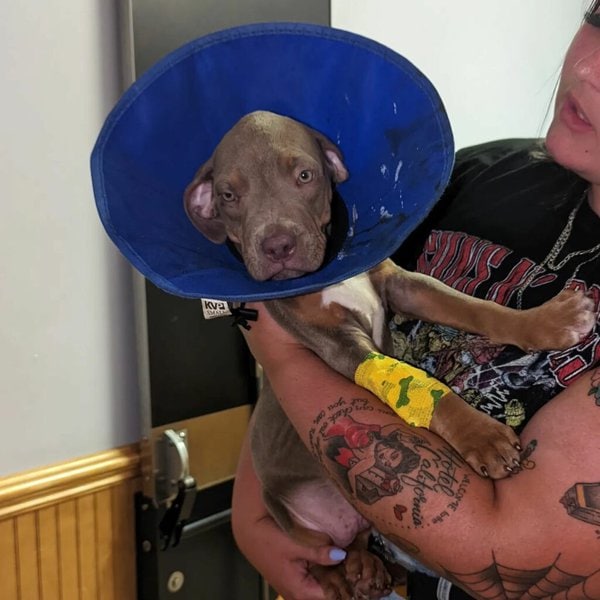
Coccidia is microscopic, spore-forming, single-celled parasites that live and reproduce inside an animal cell. They usually thrive in the intestinal walls of animals, and they are the cause of the disease called coccidiosis.
Species of coccidia are usually species-specific. The parasites that infect dogs are of the Isospora species of coccidia, namely, I. canis, I. ohioensis, I. neorivolta, and I. burrowsi.
Coccidiosis has almost the same symptoms as other fecal-borne diseases like parvovirus. But coccidia is a protozoan with a nucleus and a cell structure that can live outside a host for long periods of time.
On the other hand, a virus only has genetic material wrapped around a protein structure and dies pretty quickly without a host.
What Are The Symptoms Of Coccidiosis In Dogs?
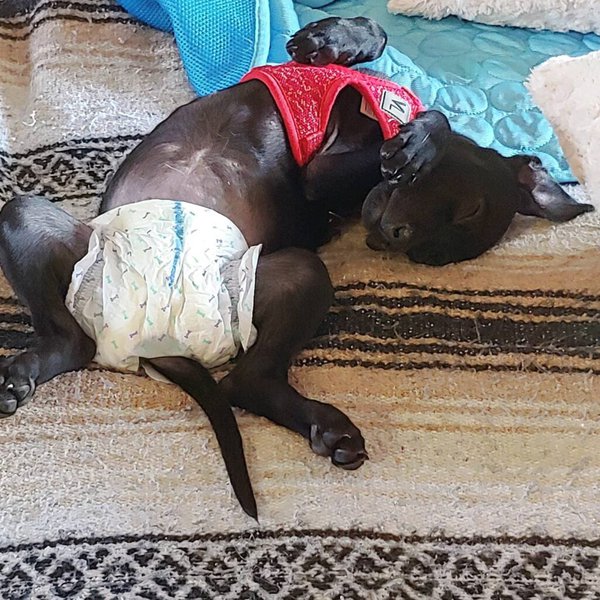
The coccidia parasites sometimes infect dogs without showing any outward clinical signs. In fact, some of them may be carriers of the parasite and may be passing the microorganisms as “silent carriers.”
But for puppies or adult dogs with a weak immune system, the following signs may be present.
- Diarrhea with blood or mucus
- Dehydration
- Weight loss
- Anemia
- Vomiting
Symptoms may show within 3 to 5 days of contracting the parasite. Dehydration and weight loss can easily weaken a puppy due to malabsorption of nutrients and can be life-threatening if not treated properly.
The only way to diagnose coccidiosis is through fecal examination. Under the microscope, they appear as single-celled organisms with thin transparent walls. For less common coccidial parasites, a blood test can determine their presence.
How Did My Dog Get Coccidia?
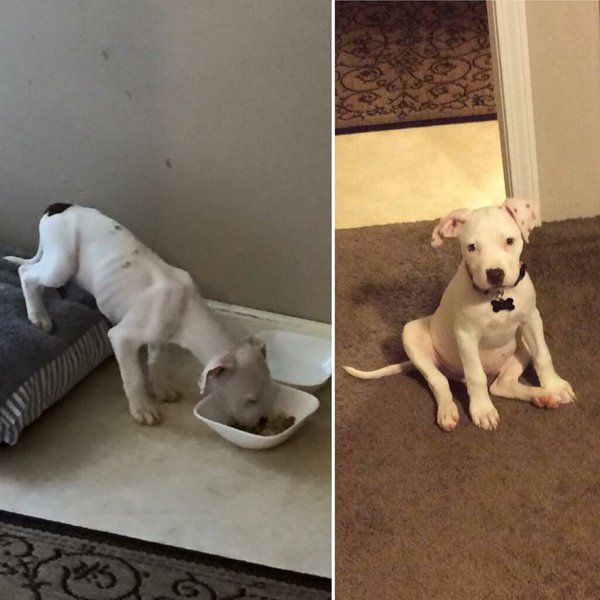
Coccidia can enter your dog’s system through the ingestion of contaminated food, water, and soil.
This microorganism can live in the environment for a long time and can survive for over a year on the ground as long as it is not exposed to extreme cold or high temperatures.
The mode of transmission is usually through the fecal to oral route when infected dogs spread thick-walled spores, called oocysts, of the coccidian parasite present in their stools.
Once their fecal matter infects the soil or water, another dog can pick up the spores either by drinking the water or grooming itself after touching the infected surface.
When the oocyst attaches itself to the lining of its intestines, it can then proceed to its next life cycle and mature or sporulate. It reproduces rapidly inside the gut and infects other intestinal cells causing these cells to burst, thus causing diarrhea.
Additionally, recent stressful situations, such as moving to a new environment or being away from its human for a long period of time, can weaken the immune system making dogs susceptible to coccidia.
And dogs with chronic diseases can lower their immunity and make them more prone to get infected.
Dogs that are used for hunting can also get the parasite after eating an infected rodent.
Can Coccidia Be Cured In Dogs?
Yes, it is cured by giving coccidiostats, a medication that acts as an anti-protozoal agent that inhibits the organism from reproducing.
Sulfa-based antibiotics, like sulfadimethoxine, are an example of this drug, and it is administered for 5 to 25 days depending on the severity of the infection.
The veterinarian may also opt to treat it with ponazuril or toltrazuril, which are coccidiocidal drugs that kill or destroy the population of the microorganisms.
These types of drugs are usually used for poultry and other farm animals, but they can be compounded for dogs used by the pharmacist. It also requires less dosage and treatment time compared to sulfa-based antibiotics.
Supportive care is also necessary for the treatment of diarrhea and dehydration, and, in some cases, IV fluids may be administered if the condition is severe.
After the course of the medication has been completed, it is important to have the dog’s stools tested for coccidia to make sure it has been eliminated from their system.
What Do You Feed A Dog With Coccidiosis?
A low-fat diet is usually prescribed by the veterinarian until the diarrhea is resolved. A bland diet of boiled chicken breast and white rice will also ease some of the symptoms.
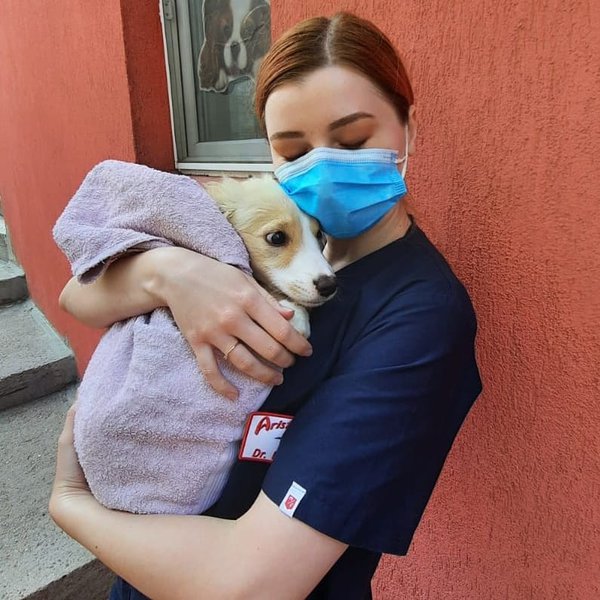
How Do You Stop Coccidia From Spreading?
The best way to stop the spread of coccidia is to clean up after your dog and avoid areas where other dogs’ feces are present. Good hygiene and sanitation minimize the risk of transmission.
You can use a disinfectant spray with a 1:16 ratio of chlorine bleach and water to decontaminate a surface. This is especially useful if your dog has been diagnosed with the disease to prevent other dogs from being infected.
Also, avoid overcrowded dog parks or daycare facilities. Not all dogs exhibit symptoms of coccidiosis, and some of them may be carriers of coccidia.
To make sure that your dog is safe, especially if it is a puppy, a yearly checkup of your pooch’s poop for parasites is practical.
Before bringing them home, newly adopted puppies and dogs from shelters or rescues should also be examined. A fecal examination could cost around $25 to $45.
Can Coccidia Be Passed From Dog To Human?
No, the Isospora species of coccidia that is common to dogs is not known to get passed from dogs to humans, but immunosuppressed humans may easily contract this parasite.
